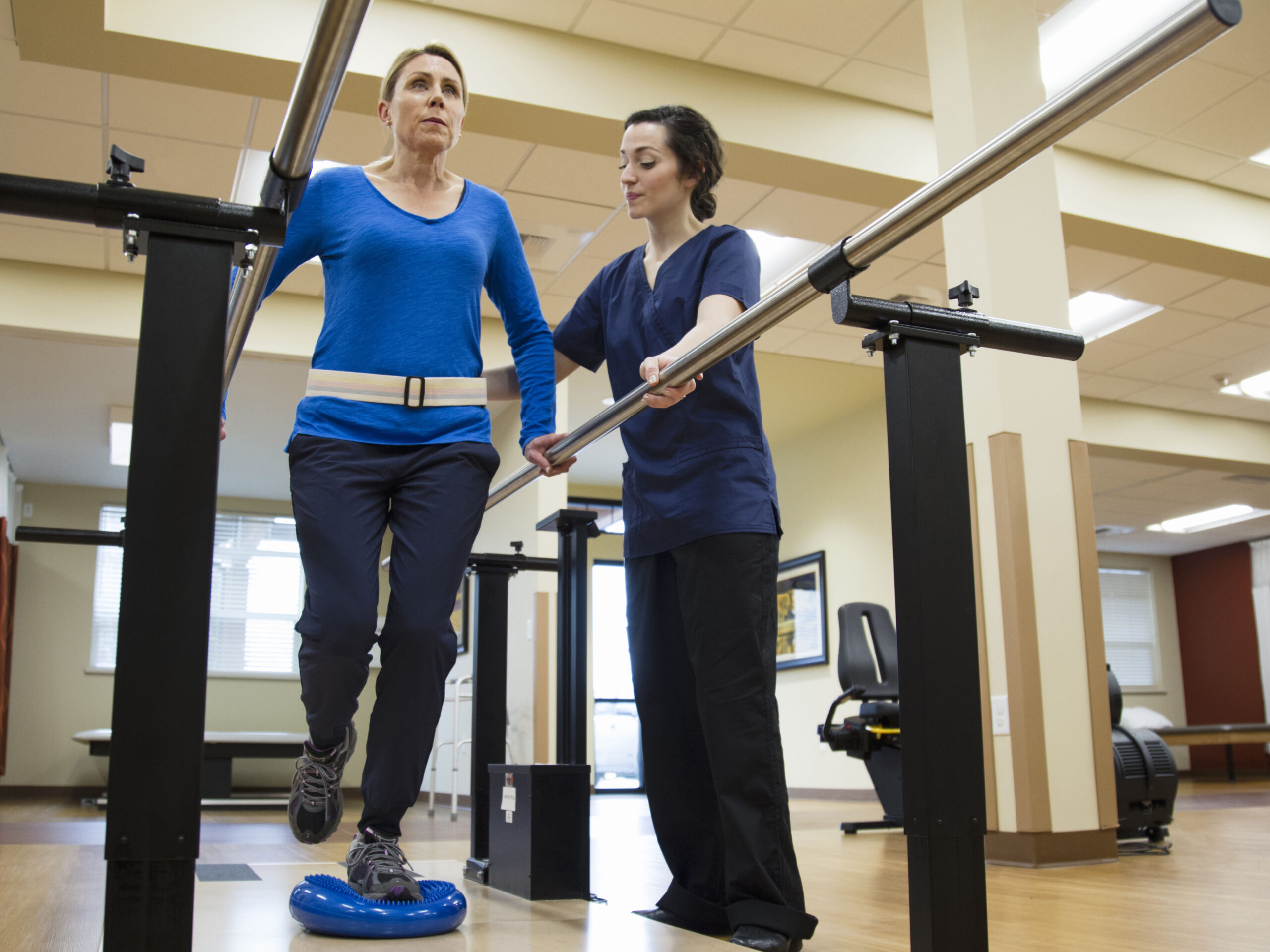View From the Bench
Workers’ Comp Docket
Court Says i-LIMB is Reasonable Accommodation
Hanson-Bayerl v. Menominee Acquisition Corp., 27 MIWCLR 124 (Mich. C.A.C. 2013)
Ruling: The Michigan Compensation Appellate Commission affirmed the workers’ compensation magistrate’s order that the i-LIMB was reasonable and necessary to replace the prosthesis provided by the employer after traumatic partial amputation of the worker’s left arm two years earlier.
What it means: In Michigan, an employer must supply an injured worker with artificial limbs and other appliances necessary to cure so far as reasonably possible and relieve the worker from the effects of the injury.
Summary: The commission affirmed the magistrate’s order that the i-LIMB was reasonable and necessary to replace the prosthesis provided by the employer two years earlier. The commission noted the magistrate found the i-LIMB was more functional than the worker’s current prosthesis. The magistrate found the i-LIMB provided a replacement limb that allowed functions more closely replicating those lost through amputation in a less intrusive manner. The magistrate also found the i-LIMB would assist the worker in her goal of returning to work.
The commission found it was premature to determine the amount of attorney’s fees for the worker’s attorney because it was not known how much the i-LIMB would cost. Also, the commission did not know what the contingent rate was in the agreement between the worker and her attorney. The commission said that the attorney’s fees would have to be calculated by the parties once the cost of the i-LIMB was actually established.
Close Call Not Enough to Prove Mental Disability
Boyd v. Chicago Transit Authority, 21 ILWCLB 191 (Ill. W.C. Comm. 2013)
Ruling: The Illinois Workers’ Compensation Commission held that an operator failed to prove a psychiatric disability under the mental-mental theory of compensability.
What it means: In Illinois, a worker can be entitled to benefits if he suffered a sudden, severe emotional shock resulting in immediate apparent psychological injury that was caused by an uncommon non-physical traumatic work-related event.
Summary: A train operator’s train was exiting a tunnel when he saw two young men attempting to run across the tracks. He was unable to stop the train and heard a thump. He believed he had run over the man and killed him. The operator saw the injured man lying on the tracks. He exited the train and saw the two men running from the scene. He subsequently sought counseling with a psychologist for anxiety, sleep disturbance, fatigue, flashbacks, and headaches. He was diagnosed with adjustment disorder, anxiety, and depressed mood. He sought benefits for a psychiatric disability arising out of the work incident. In denying benefits, the arbitrator reasoned that the operator was not exposed to a sudden, severe emotional shock. The commission affirmed the arbitrator’s decision.
Although the operator credibly testified as to the circumstances surrounding the incident, the injured man stood up, jumped a fence, and ran away under his own power. As a result, the operator was not forced to confront the extraordinary, horrific, or gruesome aftermath.
Also, the arbitrator was not convinced that the operator’s alleged mental disorder arose out of a situation of greater dimensions than the day-to-day emotional strain and tension which all workers must experience, particularly those who operate a motorized vehicle as part of their job.
Retroactive Report Doesn’t Support Award of TTD Benefits
State ex rel. Roxbury v. Industrial Commission of Ohio et al., No. 2012-0815 (Ohio 01/15/14)
Ruling: The Ohio Supreme Court held that a worker was not entitled to temporary total disability benefits.
What it means: In Ohio, before a doctor issues a report that is not based on an examination performed contemporaneously with the claimed period of disability, the doctor must review all of the relevant medical evidence generated prior to the examination.
Summary: A worker injured her back. Her claim was allowed for lumbar sprain and related injuries. One year later, she sought to add a psychological condition to her claim. A hearing officer approved the additional condition of late onset dysthymic disorder (depression). The worker sought temporary total disability benefits based on her allowed physical and psychological conditions. She had not worked since her injury. The Ohio Supreme Court held that she was not entitled to TTD benefits.
The worker asserted that she did not voluntarily abandon the workforce but that she was physically unable to return to work due to her work-related injury. Evidence showed that the worker was physically capable of performing sedentary work and that her psychological condition was not disabling. There was no evidence that she sought other work or attempted vocational rehabilitation. The court found that the worker was no longer a part of the labor market and her lack of earnings was not the result of her psychological condition.
The worker challenged the Industrial Commission’s rejection of her doctor’s retroactive opinion on disability. Before a doctor issues a report that is not based on an examination performed contemporaneously with the claimed period of disability, the doctor must review all of the relevant medical evidence generated prior to the examination. If the doctor failed to do so, the doctor’s opinion is not evidence upon which the commission can rely. The court explained that the worker’s doctor reviewed the worker’s treatment by others within her practice group but failed to mention reviewing reports of other examining physicians. Therefore, the commission properly concluded that the doctor’s opinion was not sufficient evidence to support the worker’s request for TTD benefits.
Final Reports Knock Down Pre-MMI Work Restrictions
Kempnich v. Mr. Bults, Inc., No. A-13-305 (Neb. Ct. App. 01/21/14, unpublished)
Ruling: In an unpublished decision, the Nebraska Court of Appeals held that a driver who sustained a traumatic head injury was employable for eight hours per day.
What it means: In Nebraska, the fact that an injured worker had work restrictions before reaching MMI will not bar a finding that he can work eight hours per day after reaching MMI.
Summary: A truck driver was on top of a semi-trailer attempting to secure a tarp over a load of garbage when he fell 15 feet and struck his head on the pavement. He was diagnosed with multiple skull fracture, a subdural hematoma, and an intracranial hemorrhage. His brain injuries resulted in cognitive and behavioral defects and partial vision loss. He also developed carpal tunnel syndrome as a result of the fall. A neuropsychologist stated that the driver should be limited to working six hours per day. In a subsequent report, the neuropsychologist found the driver could work eight hours per day. The driver sought permanent total disability benefits. The Nebraska Court of Appeals held that he could work eight hours per day.
The driver argued that his doctor’s six-hour workday restriction precluded all competitive employment and rendered him totally disabled. Although the neuropsychologist recommended a six-hour workday restriction in his initial report, he stated that the driver had not reached MMI and permanent restrictions would need to be addressed at that time. In a second report, the neuropsychologist determined that the driver had reached MMI and did not recommend any restrictions on the driver’s working hours in his second report. The court explained that the neuropsychologist abandoned his initial six-hour workday restriction.
Because the court concluded that the driver was employable for eight hours per day, it did not address the impact that a shortened workday might have had on the driver’s employability.
The court agreed with the compensation court’s finding that he sustained a substantial loss of earning capacity and was entitled to benefits.
Increase in Headaches Establishes Change of Condition
Bethea v. US Airways, Inc., No. COA13-740 (N.C. Ct. App. 01/07/14, unpublished)
Ruling: In an unpublished decision, the North Carolina Court of Appeals held that a flight attendant established a change of condition and was entitled to temporary total disability benefits for a two-day period.
What it means: In North Carolina, the primary factor in determining whether a change of condition occurred is whether the alleged change of condition affects the worker’s physical capacity to earn wages.
Summary: A flight attendant sustained a neck injury during the course of her employment. She underwent cervical fusion surgery. She was out of work for three years and received permanent partial disability benefits. She returned to work earning her preinjury average weekly wage. Symptoms related to her neck injury intensified and included daily headaches with nausea and blurred vision. As a result, she worked fewer hours. She was unable to work for two days due to her headaches. She did not receive workers’ compensation for those days. The attendant alleged a change of condition. The North Carolina Court of Appeals held that she established a change of condition and was entitled to temporary total disability benefits for the two days she missed work.
The court explained that a worker can show increased disability by producing medical evidence that she is physically or mentally, as a consequence of the work-related injury, incapable of work in any employment. In this case, the court found that the attendant established a change in disability and therefore a change of condition. Her headaches increased in intensity and frequency. She did not attend work for two days. Her doctor indicated that her condition would result in “intermittent flare ups” that would require time off from work.
The court found that the attendant was unable to earn wages and work due to her compensable injury-related headaches on the two-day period. She was temporarily and totally disabled from her cervical injury and its consequences on those days. The award of temporary total disability was a change from the previous permanent partial disability award. The court said that such a change was sufficient to support a change of condition.
Accommodations Don’t Cut Off Worker’s Benefits
Wal-Mart Stores v. Henle, No. 3-913/13-0366 (Iowa Ct. App. 01/09/14, unpublished)
Ruling: In an unpublished decision, the Iowa Court of Appeals held that a worker was entitled to permanent total disability benefits.
What it means: In Iowa, an employer’s accommodation of an injured worker can be factored into an industrial disability award if a position equivalent to the newly created job was available in the competitive labor market.
Summary: A worker in the inventory department of a retailer was injured when a 60-pound stack of plastic totes fell on her head and shoulder, knocking her to the floor. The injury caused her headaches and dizziness. Her doctor restricted her to lifting 20 pounds, working four hours per day, and no climbing. She returned to work after the injury but was restricted to four-hour days. The worker often missed work because of her headaches. She received partial disability benefits. The Iowa Court of Appeals held that the worker was entitled to permanent total disability benefits.
The retailer asserted that the worker was not totally disabled because she was employed and earning wages. The court explained that an employer’s accommodation of an injured worker can be factored into an industrial disability award if a position equivalent to the newly created job was available in the competitive labor market. The court rejected the retailer’s assertion that a worker must suffer from 100 percent impairment to qualify for total disability.
The accommodations needed for the worker to work for the retailer were not available in the general labor market. The worker required a significant reduction in hours and regularly missed shifts due to the severity of her headaches. Also, most of her work history was in manual labor. Her restrictions would prevent her from working in an inventory department.
The court also rejected the retailer’s argument that it was not required to pay back benefits for the weeks it accommodated the worker. The court found that any temporary total disability or temporary partial benefits should be deducted from the PTD benefits.
Foreman’s Acute Knee Injury Isn’t Compensable Occupational Disease
Valladares v. Tech Electric Corp., No. COA13-705 (N.C. Ct. App. 01/07/14, unpublished)
Ruling: In an unpublished decision, the North Carolina Court of Appeals held that a foreman’s knee injury did not constitute a compensable occupational disease.
What it means: In North Carolina, a worker’s acute injury is not a compensable occupational disease.
Summary: An electrical foreman’s position required him to perform a significant amount of squatting, kneeling, and ladder climbing. He was working within the scope of his employment when he sustained an injury to his knee. He had been squatting, and his knee popped when he stood up. An MRI revealed a complex medial meniscus tear, which required him to undergo surgery. The employer denied the foreman’s claim for workers’ compensation benefits. The foreman stipulated that his injury was not the result of an injury “by accident” and that he was pursuing his claim solely as an occupational disease claim. The North Carolina Court of Appeals held that the foreman’s knee injury was not a compensable occupational disease.
The parties agreed that the foreman’s injury was acute rather than degenerative in nature. The Industrial Commission relied on this in denying his claim, concluding that there was no expert medical evidence to support the claim that his meniscus tear was the result of a chronic degenerative process or disease that was caused by his employment.
To establish a compensable occupational disease, a worker must show the disease is characteristic of individuals engaged in the particular occupation, the disease is not an ordinary disease to which the public is equally exposed, and there is a causal relationship between the disease and the worker’s employment. The foreman asserted that relative to the general public, the significant amount of kneeling, squatting, and crouching movements he was required to perform placed him at an increased risk of suffering a meniscus tear. The commission rejected this assertion and found that to award the foreman benefits would turn the law regarding occupational diseases “on its head.” The court agreed and found the foreman’s claim did not present unique circumstances to make his claim compensable.
Lack of On-Site Supervision Renders Gym Membership Noncompensable
Chapman v. Alvin H. Butz, Inc., 28 PAWCLR 225 (Pa. W.C.A.B. 2013)
Ruling: The Pennsylvania Workers’ Compensation Appeal Board reversed the workers’ compensation judge’s decision grating the worker’s penalty petition and awarding unreasonable contest attorney’s fees to the worker.
What it means: In Pennsylvania, where the record reflects that a licensed medical provider is providing some on-site personal supervision and instruction concerning the exercises to be performed, a gym membership is properly compensable. On the other hand, where there is no indication in the record of any on-site personal supervision or instruction by a licensed medical provider, a gym membership is not compensable.
Summary: The board reversed the WCJ’s decision granting the worker’s penalty petition and awarding unreasonable contest attorney’s fees to the worker. Where the record reflects that a licensed medical provider is providing some on-site personal supervision and instruction concerning the exercises to be performed, a gym membership is properly compensable. On the other hand, where there is no indication in the record of any on-site personal supervision or instruction by a licensed medical provider, a gym membership is not compensable. In this case, the record reflects that the gym membership was to last for an entire year, but the physical therapist released the worker from his care during that time period with no indication of any planned on-site supervision.
The board therefore reversed the WCJ’s determination granting the penalty petition and awarding unreasonable contest attorney’s fees.










